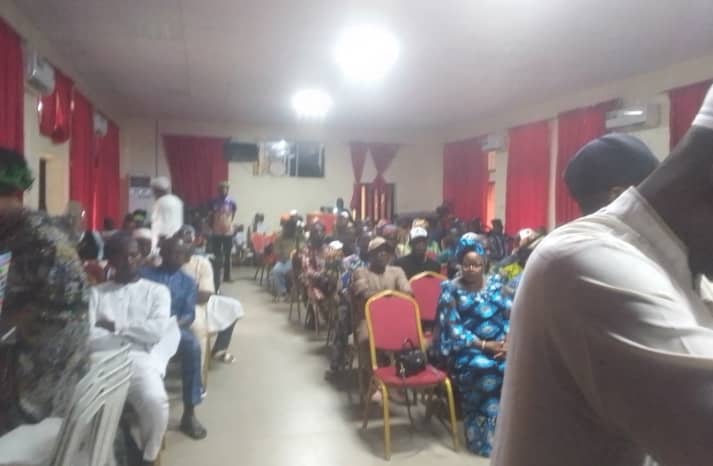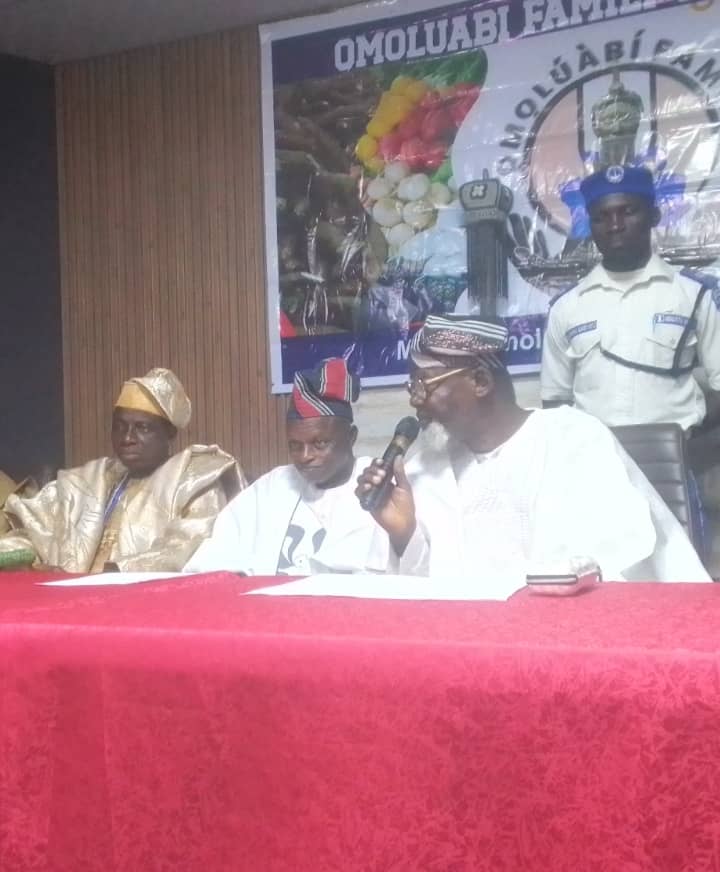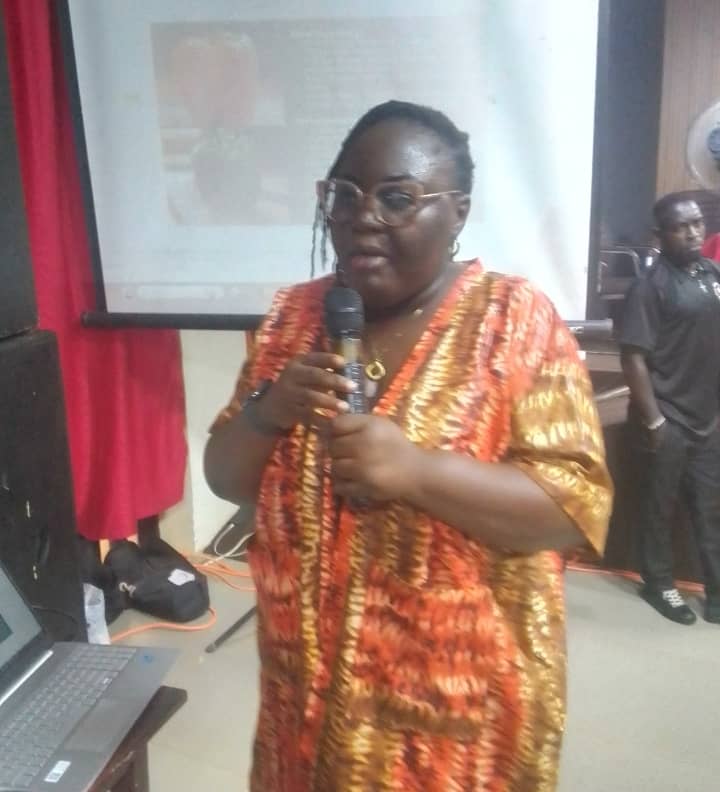Yusuf Bakare
Leaders, traditional rulers, religious figures, and community representatives from across Yorubaland convened at the NUJ Press Centre in Iyaganku, Ibadan, on August 3, 2025, for a significant sensitization lecture titled “Embracing Progress: Modern Farming, Security, and the True Origins of the Yoruba People,” organized by the Omoluabi Family Foundation.
The event highlighted a collective call to action to harness modern agricultural techniques for economic growth, fortify security for rural communities, and deepen understanding of Yoruba cultural heritage as essential pillars for the region’s sustainable development.
Yeye Victoria Omodara, President of the Omoluabi Family Foundation, set the tone by emphasizing agriculture as the cornerstone for progress.
“Modern agriculture is not a return to the past but a leap into the future—where innovation and technology empower our farmers and youth to secure food supplies and generate income,” she said.

Omodara, who was represented by Comrade Adesina Akinpelu, urged policymakers, traditional rulers, and community leaders to invest in revitalizing Yoruba farmlands to achieve food sufficiency and create meaningful employment opportunities for young people.
Supporting this vision, Professor Sabit Ariyo Olagoke, Founder and Spiritual Head of Shafaudeen in Islam Worldwide, underscored the importance of embracing sustainable farming practices supported by technological innovation.
He connected this call to deep spiritual and ancestral ties that inspire responsible land stewardship.
Also, Araba of Ibadanland, Araba Ifalere Odegbemi Odegbola II, emphasized unity among traditional rulers and communities to collaboratively protect farmland and boost productivity, framed within culturally grounded governance.
In his lecture, he also spoke about the origins of Yoruba people and stated that race is one with history and origin.

Dr. Tou Fadoju of the Development Agenda for Western Nigeria (DAWN) Commission called attention to the crucial role of government policies and partnerships with local farmers to build resilient and modern agricultural systems vital for Yorubaland’s future.
On ensuring a secure environment, Oba Muritala Gbolagade Babalola, the Onido of Ido, highlighted that the prosperity from farming and economic activities depends fundamentally on peace and safety.

He advocated strong cooperation between traditional authorities, government security agencies, and community members to curb conflicts and insecurity in rural areas.
Also, speaking, Prophet Sunday Babalola added a spiritual perspective, stressing moral renewal and community vigilance as foundational to lasting security and stability that underpin development.
Adding to the security discourse, Comrade Adesina Akinpelu and Dr. Abegunrin Adebayo Olugbenga emphasized protecting the lives and properties of farmers and rural dwellers as essential to enabling economic confidence and steady growth across Yoruba communities
On cultural heritage, Comrade Alaba Adebisi and fellow speakers highlighted the importance of educating Yoruba youths about their rich history and origins to foster cultural pride, unity, and a stronger sense of identity.
They urged concerted efforts to illuminate the true story of the Yoruba people amidst widespread misunderstandings.
The lecture concluded with a communique encapsulating key resolutions:
Widespread adoption of modern farming practices by Yoruba traditional rulers, governments, and individuals to achieve food self-sufficiency and create jobs for youth.
Provision of adequate security for farmers and rural communities, with particular emphasis on proactive involvement by state governors and security agencies.
Enlightenment of Yoruba youths and children about their origin and history to reinforce cultural identity and social cohesion.
Advocacy for social, educational, technological, and economic empowerment focused on driving an agricultural revolution across the region.
Participants expressed deep appreciation to Yeye Victoria Omodara and the Omoluabi Family Foundation for spearheading the lecture, which drew diverse voices unified in pursuit of a prosperous, secure, and culturally enriched future for Yorubaland.
The event marks a milestone in fostering collaboration among traditional rulers, government agencies, religious leaders, and community groups to embrace progress while honouring the Yoruba heritage.

